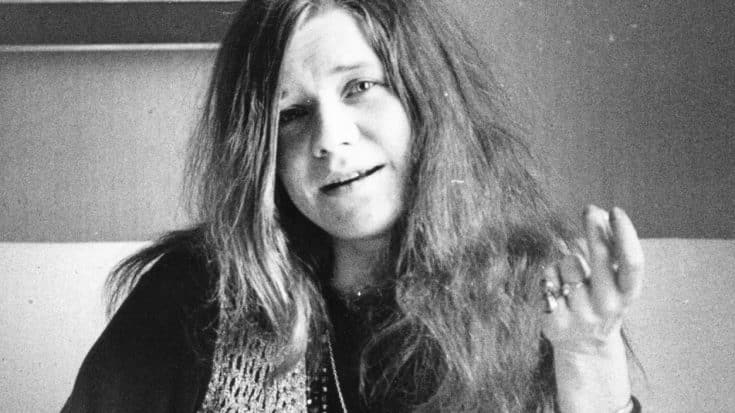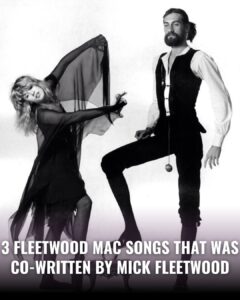12 “Secrets” Fans Learned After Janis Joplin Died
12 “Secrets” Fans Learned After Janis Joplin Died

In a startlingly brief career, Janis Joplin had a lasting impression on rock music. She shot to popularity in a few years and four albums, first as the formidable lead singer of Big Brother and the Holding Company and later as a solo performer. From her breakthrough performance at Monterey Pop to her flaming performance at Woodstock, she illuminated some of the most famous stages of the 1960s.
Joplin led a fast-paced, unconventional, and free-spirited existence. She died tragically at the age of 27 due to self-destructive habits, such as heavy drinking and drug use, that accompanied her extraordinary skill.
Her influence only increased after she passed away. And as time went on, fresh accounts and insights on her life surfaced. Continue reading to learn some amazing facts about Janis Joplin that we only found out after her death.
She Paid for Her Own Goodbye Party
Janis Joplin lived life on her own terms, and even in death, she made sure to go out with a bang. In her will, she left behind an unusual but fitting request: a posthumous party for her friends. She set aside $2,500 “to cause a gathering of my friends and acquaintances at a suitable location as a final gesture of appreciation and farewell to such friends and acquaintances.”
The wake was held at her home in Larkspur, just outside San Francisco, and it turned into quite the event. Among the guests was actor Peter Coyote, who later recalled the scene to author Myra Friedman in Buried Alive: The Biography of Janis Joplin. He compared it to a moment from Zorba the Greek, where “the old chick croaks and all the f***ing buzzards are there.”
Coyote was shocked by how some attendees behaved. “People were coming over to that house and walking around and taking s***! You know, ‘I want this, I want that,’” he said. “I couldn’t believe it… I thought to myself, ‘Phewww, that’s a lousy way to treat somebody.’”
Her Last Recording Was a Birthday Song for John Lennon
Just before her untimely death, Janis Joplin was in the middle of recording Pearl at Sunset Sound in Los Angeles. The last song she officially recorded was the acapella classic Mercedes Benz, but that wasn’t actually her final performance.
According to her road manager, John Byrne Cooke, in On the Road with Janis, Yoko Ono had asked several rock stars in L.A., including Joplin, to record a birthday message for John Lennon’s 30th. Cooke recalled hearing the tape while Pearl producer Paul A. Rothchild played back recordings at Sunset Sound. “The first song Paul plays for us… is Janis and Full Tilt’s contribution… It is raucous and joyful. We hold the final ‘Happy birthday to youuuuuuu,’ and Janis says, ‘Happy birthday from Janis and Full Tilt Boogie! Happy birthday, Johnny!’” The recording wrapped up with a playful rendition of Happy Trails.
Lennon later confirmed on The Dick Cavett Show that he had received the tape after Joplin had passed. “It arrived in the post, and she was singing ‘Happy Birthday’ to me in the studio,” he said.
She Was Trying to Find Balance Before Her Death
Despite her wild reputation, Janis Joplin was actually trying to slow down and find more balance in her life before she passed. Her sister, Laura Joplin, shared with Classic Rock that Janis was looking for a way to ease up—not just on the relentless touring and recording schedule but also on her substance use. “It was hard to have relationships when traveling that much, and she was having ideas of… trying to live a more balanced life in terms of the amount of time she toured,” Laura explained.
During the Pearl sessions, Janis cut back on drinking to protect her voice, wanting to perform at her best without being drunk or hungover. Instead, she turned to heroin, planning to quit once the album was finished.
Her brother, Michael Joplin, reflected on her story: “It’s important to be true to yourself… and at the same time… to realize that you have to live with the consequences of your behavior. And she died from them.”
Rumors About Janis Joplin’s Love Life
Janis Joplin had well-known relationships with men like The Grateful Dead’s Ron “Pigpen” McKernan and Kris Kristofferson, but there were also claims she had romantic ties with women. Her friend, Peggy Caserta, wrote in her 1973 tell-all, Going Down with Janis Joplin, that they had been involved and that Joplin was a closeted lesbian who dated men to keep up appearances. However, those close to Joplin weren’t convinced. Her sister, Laura, told Classic Rock, “There are a number of people who have tried to present Janis as a frustrated lesbian… but for the most part, they have not maintained it once they have really started looking at her life.”
Years later, Caserta—who passed away in 2024—admitted the book was ghostwritten. “I didn’t write that trash. I sold out for drug money,” she told Vulture in 2018, later insisting, “She was straight.”
Big Brother & The Holding Company guitarist Sam Andrew had a different take, saying, “I think there is an element of truth in the fact that Janis hid her interest in women from all of us, but I just can’t be sure.” However, he also added, “I have to say that she was quite interested in men, and genuinely so.”
Janis Joplin’s Bold Offer to Clive Davis
Janis Joplin was never one to follow the rules, and her approach to life—including relationships—was anything but conventional. She fully embraced the free-love mindset of the hippie movement, and years after her passing, record executive Clive Davis shared a story that perfectly captured her uninhibited nature.
In a 2014 interview with The Guardian, Davis recalled that when Joplin was signing her record deal, she casually suggested celebrating unconventionally. “Ha, that’s true,” he admitted. “Janis—who never wanted to do anything formulaic, typical or predictable—was starting out in her career, and it was a very important moment for her. I think it was a little too formal and maybe corporate just to sign a document… so she asked to sleep with me to make it more personal. I took it as a big compliment, although I turned it down.”
Janis Joplin’s Close Call with Heroin Before Her Death
Janis Joplin’s sudden passing at 27 shocked fans, but those close to her saw the warning signs long before. In an interview with The New York Times (via The Telegraph), Joplin acknowledged her reckless lifestyle, saying, “I might be going too fast… that’s what a doctor said,” before joking, “I don’t go back to him anymore.”
Holly George-Warren, author of Janis: Her Life and Music, believed Joplin viewed heroin as the lesser of two evils. “She actually tried to keep the drinking in check because liquor is much worse on your voice than heroin,” she told Texas Monthly.
Her addiction nearly killed her before. Friend Linda Gravenites once found her unconscious, turning purple from an overdose, and revived her just in time. Guitarist Sam Andrew later explained why heroin had such a grip on Joplin: “She was a compulsive thinker… heroin enabled her to become soft, unfocused, intuitive, and receiving.”
Janis Joplin’s Struggle to Stay Clean Before Her Fatal Relapse
For a while, it seemed like Janis Joplin had finally kicked her heroin habit. “She tried to kick heroin a few times. She finally did almost for good in 1970,” biographer Holly George-Warren told Fresh Air. Hoping for a fresh start, Joplin took off to Brazil with her friend Linda Gravenites, leaving behind $2,500 worth of heroin with Peggy Caserta.
In Rio, she met David Niehaus, a down-to-earth backpacker who saw her as more than just a rock star. “He wasn’t a hippie, he was a world traveler, a mountain man… strong enough to handle her,” Janis: Little Girl Blue director Amy Berg told The Telegraph. But when they returned to San Francisco, her old crowd rejected him. As Joplin slipped back into heroin while recording Pearl, Niehaus walked away.
Tragically, her final dose was far purer than what she was used to. “Her tolerance was down… she was by herself, overdosed, and died,” said George-Warren.
Peggy Caserta’s Controversial Take on Janis Joplin’s Death
Many believe Janis Joplin’s heroin use led to her tragic overdose, but Peggy Caserta had a different theory. According to Joplin’s road manager, John Byrne Cooke, Caserta’s presence in Joplin’s life was a bad influence. “Peggy was banished from Janis’s house in the spring, along with the rest of Janis’s druggie friends,” Cooke wrote in On the Road with Janis. He also observed, “When it comes to hard drugs, Peggy will be a conspirator with Janis, not a restraining force.”
Caserta, however, later insisted Joplin’s death wasn’t due to heroin. “She didn’t overdose,” she told Vulture. After seeing the scene at Joplin’s hotel room, Caserta believed the singer had tripped, hit her head on the nightstand, and broken her nose. “Maybe if she hadn’t been loaded… she might have been able to struggle up,” she speculated. “But she tripped and fell, honey. I’m positive of it.”
Janis Joplin Was A Rebel Who Kept in Touch with Home
Janis Joplin may have embodied the wild, rebellious spirit of rock ‘n’ roll, but behind the scenes, she never lost touch with her family in Texas. While she liked to play up the image of a runaway, claiming she’d been on her own since 14 when her parents kicked her out, that wasn’t the case.
In Janis: Little Girl Blue, filmmaker Amy Berg revealed never-before-seen letters Joplin wrote to her parents, updating them on her journey to fame and sharing personal thoughts. In one, she even made a simple Christmas request: “The only thing that I can think of that I want is a good, all-round cookbook, Betty Crocker or any good one.”
“She wrote lengthy letters, and after she made enough money she made lots of telephone calls,” her sister Laura Joplin recalled. Despite their different worlds, “they still had a strong bond.”
Janis Joplin Is More in Control Than She Let On
Janis Joplin built a larger-than-life image as a wild, free-spirited rock star—hard-drinking, hard-partying, and always living on the edge. She even gave this alter ego a name: Pearl. In Buried Alive, author Myra Friedman described Pearl as “A hard-drinking-swearing-always-partying-f***-anybody-get-it-on-get-it-off-stay-stoned-keep-on-rocking floozy …”
But beneath that reckless persona was a fiercely dedicated artist. Biographer Holly George-Warren, author of Janis: Her Life and Music, uncovered a different side of Joplin. “Over her short life, Janis perfected an image… but I realized there is this other part of her that people don’t know,” she told Texas Monthly. “Behind the scenes, she was a hardworking musician who spent years honing her craft.”
Joplin kept that disciplined side hidden, even though, as George-Warren noted, “on these tapes, Janis is in charge… she’s clearly running the show.”
Janis Joplin Was Ready to Step Back—At Least for a While
Just three months before her death, Janis Joplin hit the road for Festival Express, a wild, traveling music tour across Canada with The Grateful Dead, The Band, and Buddy Guy. In the 2003 documentary about the tour, she opened up to singer Bonnie Bramlett, admitting, “Women, to be in the music business, give up more than you’d ever know … a home and friends, children and friends.”
Her sister, Laura Joplin, recalled that Janis was feeling drained from constant touring and recording, which fueled her drinking and drug use. She had even fallen for a new boyfriend, novelist Seth Morgan, and was seriously considering marriage and a quieter life. But her friends weren’t convinced. Guitarist Sam Andrew believed she’d never truly step away, saying, “I could see her going through a ‘retirement’… but the ‘picket fence’ doesn’t exist. It’s an illusion.”
Janis Joplin’s Estate Made More Money Than She Ever Did
It’s a harsh reality that some rock legends earn more after death than they ever did in life. Jimi Hendrix, who, like Joplin, passed away at 27, had just $20,000 to his name when he died. His estate? Now worth around $175 million, according to Musiclipse.
Janis Joplin’s story isn’t much different. Her career was only a few years old when she died, and Celebrity Net Worth estimated her estate at $250,000 at the time. But her posthumous album Pearl was a massive hit, selling 4 million copies and bringing in $6 million, per The Richest. Her Greatest Hits album in 1972? Another 7 million copies sold, adding $10.5 million.
Today, Joplin’s siblings oversee her estate, which still earns money from music, merch, and licensing. In 2015, they even sold her iconic psychedelic Porsche for a record-breaking $1.76 million.


